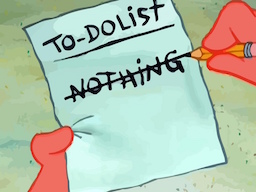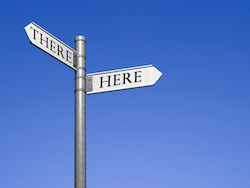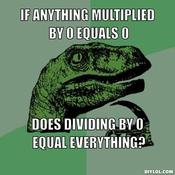LETTERS FROM THE GLOBAL PROVINCE
Doing Nothing But Doing It So Well, Global Province Letter, 11 November 2015
"Rest is not idleness, and to lie sometimes on the grass under trees on a summer's day, listening to the murmur of the water, or watching the clouds float across the sky, is by no means a waste of time."—John Lubbock, First Baron Avebury
Shadow Box .
Back in 1977, when America still had optimism, a lovely play about death reared its head on Broadway and won awards galore. Set in a hospice, it tells of 3 good souls who are dying of cancer, each summing up life thus far. Second up is Brian, an older gay fellow, who soliloquizes on how he came together with the young fellow we see in the window of their house behind. "You know," said Brian, "I got interested in what he was doing. Which as it turns out was nothing. But he was doing it so well."

Going Against the Grain. Surely that—doing nothing well—would be the instruction on the tablets of Moses today if he were to come down the mountain to visit with us. In 2015, we stumble beneath a horrible digital data load, which goads us to fidget and fume and supposedly work 24/7 all day every day. Frenetics are written in our faces. The charge from the gods would be, could we hear it, to escape the rat maze in which we live, lay back, and do nothing very, very well.
That's not easy. We know a clutch of people, good and thoughtful people but inert, who still fall victim to their useless compulsions each day. These are intelligent people sort of doing nothing, but doing it poorly. Many of these sweet alien folks walk about a whole lot covering 5, 10, even 15 miles a day. To a man, and to a woman, they read book after book, installing tangled plots and copious insights in their heads, never to be used. They are ascetic, quiet as much as those in monastic orders, but in no way blessed. Tears run down the cheeks if we think too hard on these friends and countrymen who have turned into brown studies, joyless before their time...
This band of lonely hearts reminds us of John Archer, the protagonist of Henry James in his 1903 novella, The Beast in the Jungle. Life does not happen with Archer, for he awaits with fear and fascination some great event he is sure lies in his future. But that great event is a beast, indeed, for it turns out the great thing that is to happen is that his life will be without a soaring experience; it will have a gigantic emptiness. Such a gargantuan nothingness is not what we are gasping for.
Several of our readers have written to ask us to ponder doing nothing, and we are here to oblige. They do not have in mind the hapless souls above who walk the earth chased by unhappiness depositing neurosis whither they go. Their lot is stoic unhappiness, a getting through life. Instead, our inquirers wonder if it is not possible to skirt the monstrous routine which deadens the heart and senses in a gross national product society, turning us into automatons even more mechanical that the robots who have captured our factories. How do we extract more from doing much less?
Philosopher's Holiday.
While John Archer was vegetating away, a pleasant little volume called Philosopher's Holiday
was blissfully sleeping on our family's bookshelves, unread by us. It had to be boring. Besides we had better stuff, like the Hardy Boys, to sink our eyes into.
Turns out, decades later, we have learned that author Irwin Edman has the answer to everything that really concerns us. A very popular philosophy professor at Columbia University, he penned this amiable volume in 1938, a very civilized digression in a world that was fast turning barbaric. For him philosophy was a catalyst that helped one lead a beautiful, cultivated life. It was not coded, poorly written mumbo jumbo that deconstructed life and left it in pieces. Above all it was more art than science.
In the course of this book, Edman has lovely accidental meetings with people with whom he achieves philosophic rapport. With time alone and with nothing to do, with solitary investigation, he wanders into harmony with others of thoughtful demeanor. "It is as if one had found one's way to a lonely mountain top by oneself on a path where one met no one, but at the peak met others who had come by their own solitary paths to the same final vista." The point then of this kind of doing nothing is to take solitary trails that ultimately leads to communion with likeminded lads and lassies. Doing nothing leads to aesthetic fulfillment and communion with men of distinction.

Being There. The 1970's movie Being There is based on a novel by Jerzy Kosinski, who is thought to have made up his own biography and who is reputed to have stolen the plot for the book from somebody else. To boot, says one reviewer, it is a film "about a man whose mind works like a rudimentary A.I. program." The story and the author could have been snatched from present day America where we seem to read about more and more people who make up their past out of whole cloth, appropriate the property of others with abandon, and use digital technology to fabricate fiction that is far stranger than truth.
Another vital luxury of one who chooses to do nothing is a capacity for being here, instead of being there. Gurus aplenty now command us to be very much in the moment where we are now. To turn our backs on virtual reality and made-up worlds (deleted space after made-), and to inhabit fully the very space and time where we find ourselves at this moment. Doing nothing in this view is putting aside flimflam fantasies, avoiding thoughts of other times and places, resisting playacting that takes us away from the here and now, all so we can be genuine and very much part of the moment where we find ourselves.
Years ago Time's then very good theater critic Ted Kalem took us to a play on the Bowery in New York. In a bar around the corner afterwards for a drink, he grimaced at people who could dwell on wars in Asia and the price of tea in China, but could not dig in their pockets to give a starving bum on the sidewalk a quarter or two for a drink or a bite. Surely tis a good illustration of how easy it is easy for knowledge workers around the world to let words and random thoughts drag them away from where they are and what they should be doing now. There is a pleasure in dashing away the far- away to immerse ourselves in the very- near. Doing nothing allows us to touch the here and now such that our media-littered world is entirely blocked from our view.
Filter Fish. Just a few weeks before his death famed neurologist and writer Oliver Sacks got busy doing nothing, penning a lovely one-page (added -) essay on gefilte fish for the New Yorker. His thoughts and pursuits narrowed greatly as death came to swallow him up. He could barely manage food, but somehow gefilte fish, with deliveries coming in from all the shops, made its way down his gullet. With gefilte fish, he filtered out all the world. One gets down to the joys of doing nothing well as mortality closes in. It even seems the very right thing to do. Said Sacks, "Gefilte fish will usher me out of this life, as it ushered me into it, eighty-two years ago."

La Dolce Far Niente. Circa 1960 Fellini burst forth with his film La Dolce Vita. It evokes the larger phrase "the sweet life is to do nothing." It is a movie about self-indulgence with the hero veering between fun and fruitless escapades and his desire for a life of meaning and intellect. The arbiters of the 60s found it risqué and moralized that it underlines the emptiness of a pointless life. However, the man in the street found it to be vastly entertaining and hoped that he might occasionally take up such shenanigans.
Doing nothing well, we suspect, can happily embrace such an escape from the humdrum and the workaday. It is life-giving (deleted space after -) to take long lunches, meander through long stretches of laughter, and flaunt ideas that defy a society where people are urged to spend all day on the treadmill. This does not mean a descent into the tawdry.
P.S. We have never had gefilte fish and may even be slightly repulsed by the thought of ingesting it. But Sacks is to be our guru at last. We intend to have it very soon.
P.P.S. We further recommend to our readers "Rest and Repose, 26 June 2013," where we dwelled yet more on the lazy life.
P.P.P.S. 24/7 is an awful expression in itself. It is a bad, frenzied way of saying that we are receptive to every prong, and prick, and push our world, particularly our computer world, can inflict on us. We suspect that kneejerk would more aptly and more colorfully describe our state of being than 24/7.
P.P.P.P.S. There's no end of reasons for doing nothing that range well beyond an individual's quest for peace of mind. The witty, brilliant, sometimes quixotic Senator Pat Moynihan, while serving Richard Nixon, famously said we could ease our social problems and eventually solve them with a little "benign neglect," knowing full well that activist politicians often leave the world a little worse for wear. The ability of British statesmen to wink at parliamentary law allowed them to rule the American colonies with a soft hand, much to the advantage of the Mother Country and her dominions. This policy was known as salutary neglect.
We ourselves remember a client in Tennessee, the president of a small bank, who was both lazy and who spent too much time having an affair with his secretary. Revenues at the bank hardly advanced. An Atlanta bank moved in, filling its office with a bunch of go-getters: they shamed the hometown bank, and the coffers of their new branch were bursting. But then there was a downturn in the economy, and the portfolio of the new boys proved to be chock full of non-performing (deleted \) loans. The indolent, dalliance-prone local banker became the hero of the day. His portfolio did not go under water.
P.P.P.P.P.S. "Lazy? That's a Deal Breaker." This article about academic studies evaluating why women and men discard potential mates, considering them ill suited for marriage, shows (added s) that calculating men and women, and especially women, look with distaste on lovers who are lazy or disheveled. Sixty to seventy percent would cast out lazy candidates, no matter how attractive. Our nation of go-getters has a hard time dealing with bemusing do nothings.
Home - About This Site - Contact Us
Copyright 2015 GlobalProvince.com